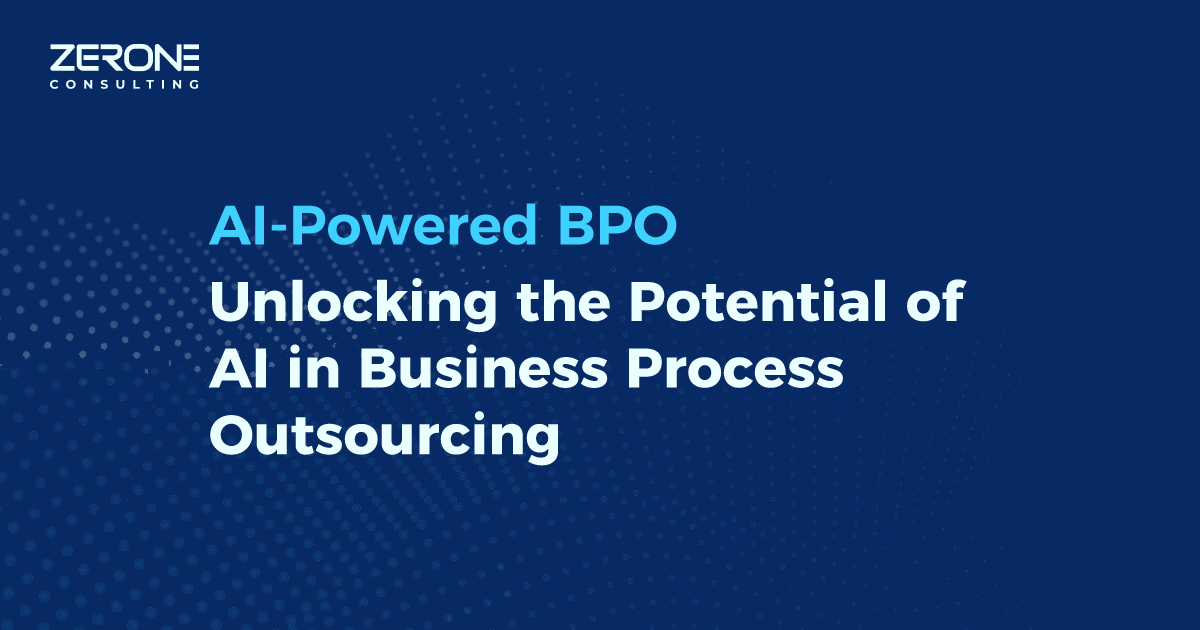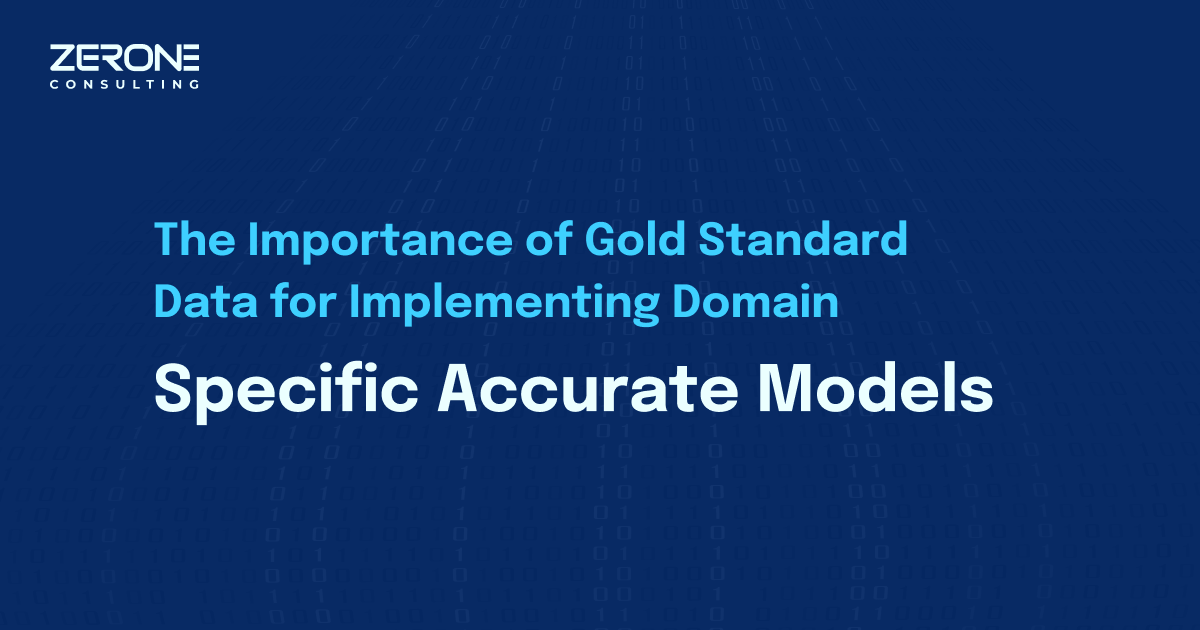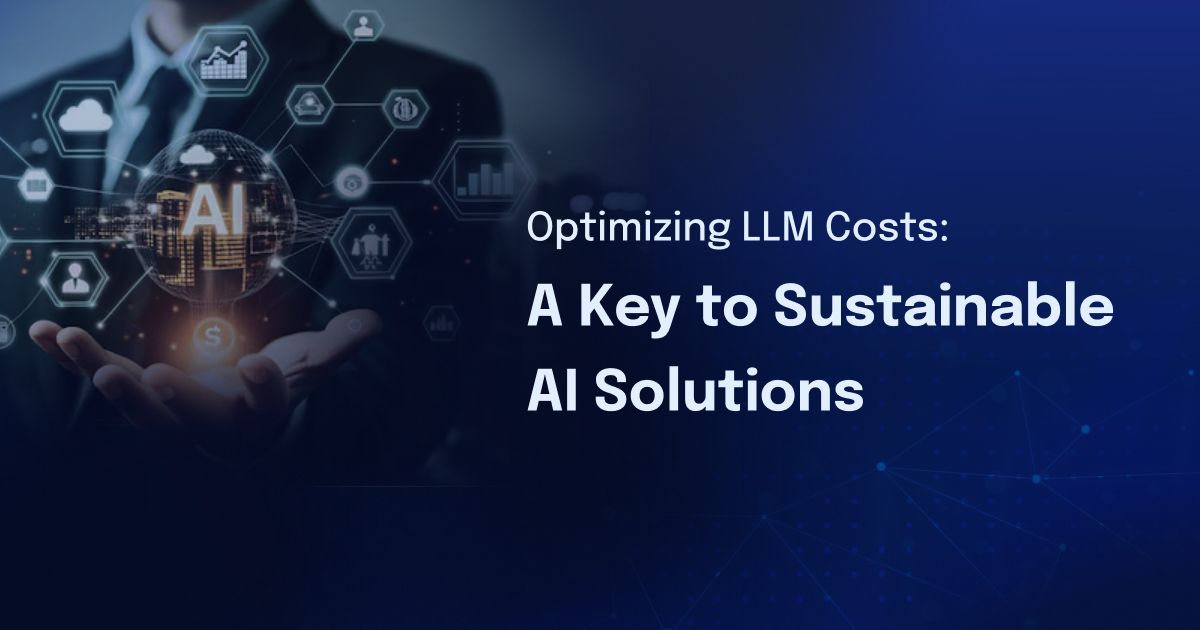Personalized Care with Digital Twins and AI: Revolutionizing Healthcare Solutions
The healthcare industry is continually evolving, driven by the need to improve patient outcomes, reduce costs, and provide personalized care. One of the most promising developments in recent years is the integration of digital twins and AI technologies. These innovations are poised to revolutionize personalized care, offering unprecedented opportunities for healthcare providers to deliver tailored treatments and enhance patient experiences. This blog explores the latest developments, future insights, and key statistics, providing valuable information for business owners and decision-makers in the healthcare sector.
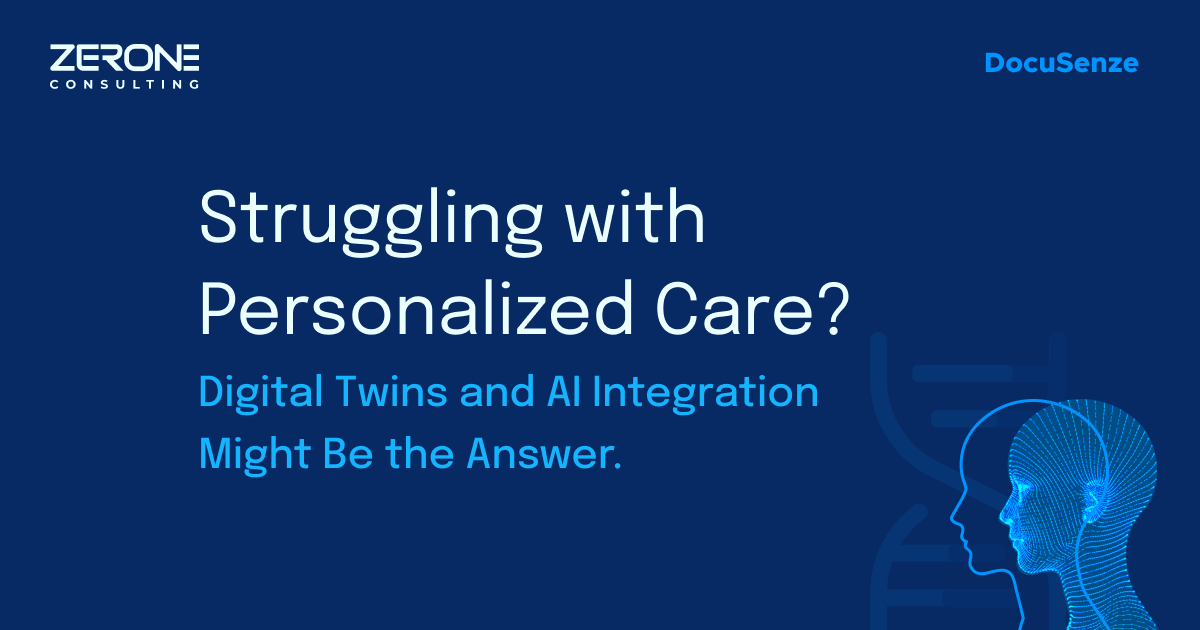
The Power of Digital Twins in Healthcare
Digital twins are virtual replicas of physical entities, and in healthcare, they can represent patients' anatomical and physiological characteristics. By creating a digital twin of a patient, healthcare providers can simulate various treatment scenarios and predict outcomes with high accuracy. This technology allows for personalized treatment plans that are tailored to the unique needs of each patient.
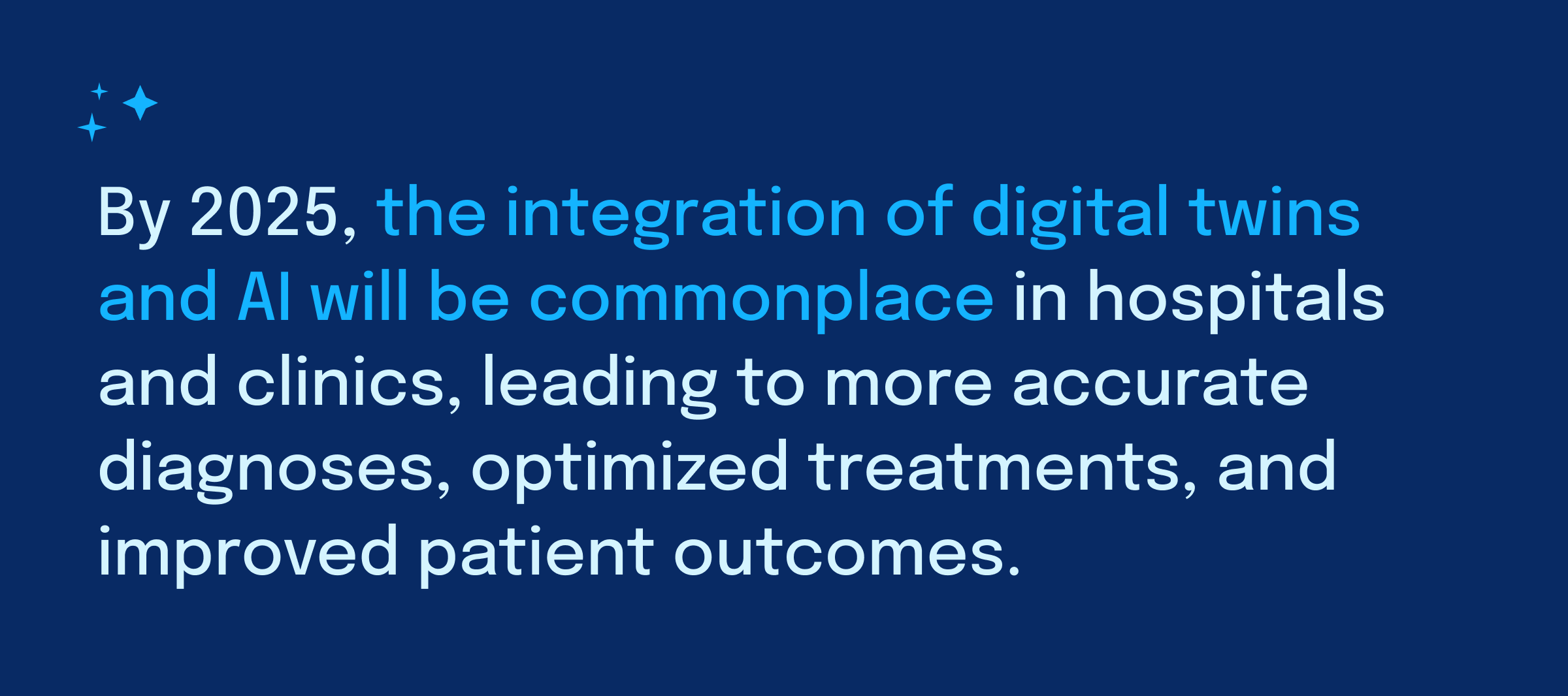
Latest Developments:
- Digital twins are being used in surgical planning to simulate procedures and predict potential complications.
- In cardiology, digital twins can model heart conditions and optimize treatment strategies for individual patients.
- Personalized medicine is leveraging digital twins to tailor drug therapies based on genetic, environmental, and lifestyle factors.
Future Insight:
By 2025, digital twins are expected to become a standard tool in personalized care, significantly improving treatment outcomes and patient satisfaction.
AI Integration: Enhancing Predictive and Diagnostic Capabilities
Artificial intelligence (AI) is transforming healthcare by enhancing predictive analytics and diagnostic capabilities. AI algorithms can analyze vast amounts of data to identify patterns and predict future health events. This capability is particularly valuable in managing chronic diseases and preventing hospital readmissions.
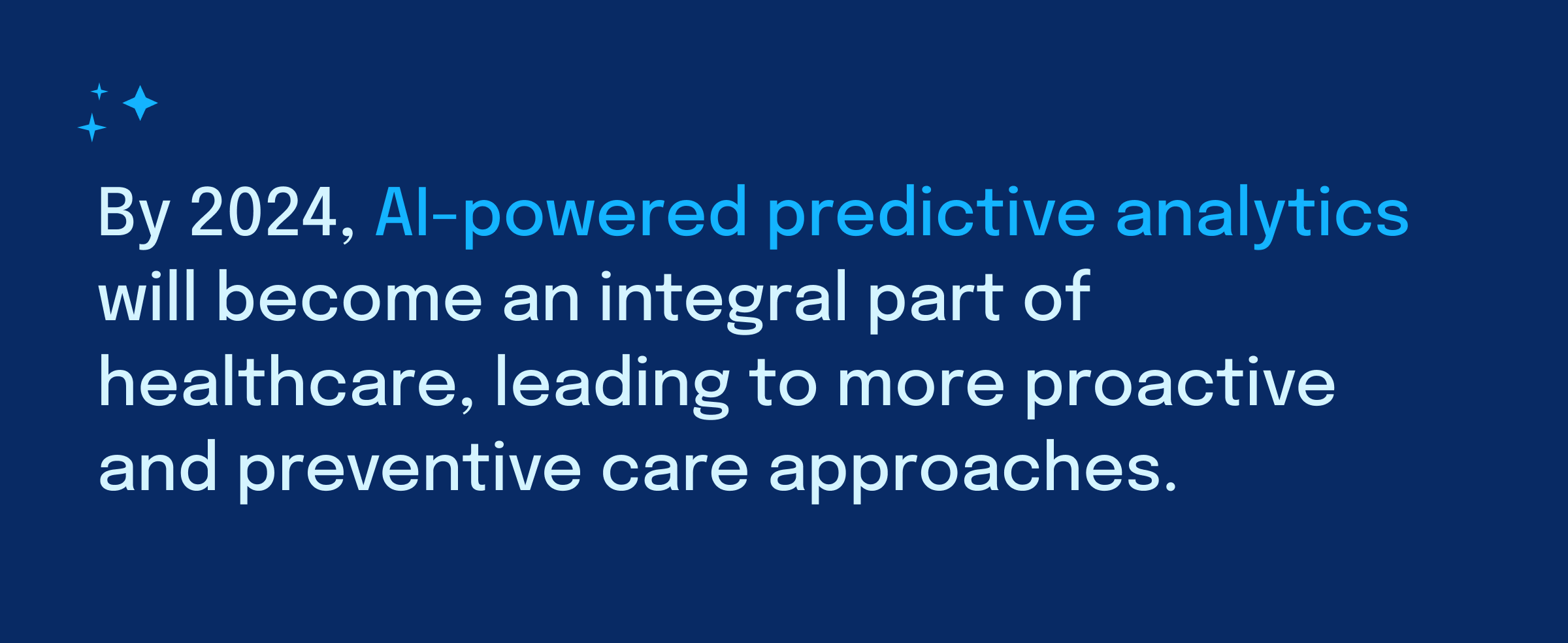
Key Statistics:
- According to McKinsey, AI could create up to $150 billion in annual savings for the U.S. healthcare system by 2026 through improved clinical operations and personalized treatments.
- Forbes reports that AI-driven predictive analytics can reduce hospital readmissions by up to 30% by anticipating patient deterioration and enabling timely interventions.
Future Insight:
By 2024, AI-powered predictive analytics will become an integral part of healthcare, leading to more proactive and preventive care approaches.
The Synergy of Digital Twins and AI
The combination of digital twins and AI offers a powerful synergy that enhances personalized care. Digital twins provide a comprehensive virtual model of the patient, while AI analyzes data and predicts outcomes, allowing for more informed decision-making.
Use Cases:
- In oncology, digital twins combined with AI can simulate tumor growth and response to treatments, enabling oncologists to design personalized cancer therapies.
- In orthopedics, digital twins can model joint movements and predict the success of surgical interventions, while AI algorithms optimize rehabilitation protocols.
Future Insight:
By 2025, the integration of digital twins and AI will be commonplace in hospitals and clinics, leading to more accurate diagnoses, optimized treatments, and improved patient outcomes.
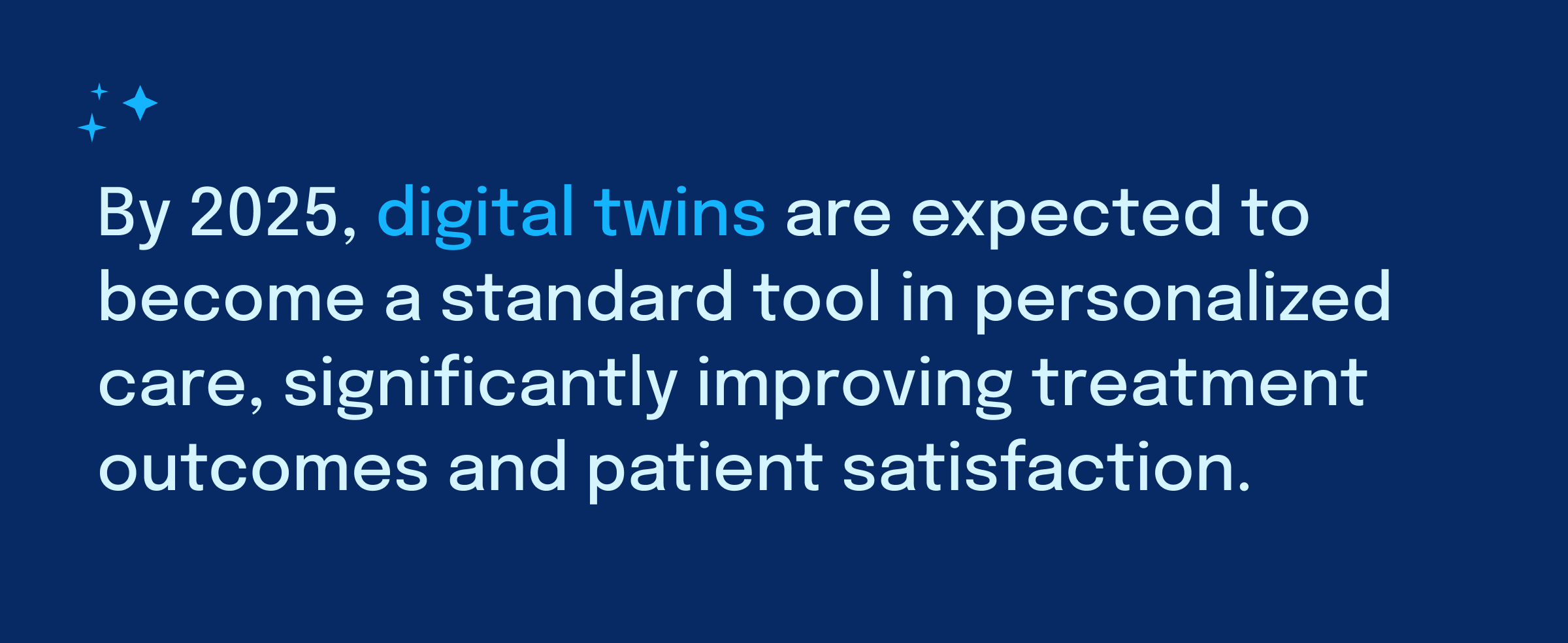
Addressing Pain Points with DocuSenzeAccelerator
Managing vast amounts of healthcare data and extracting meaningful insights can be challenging. This is where AI-powered tools like DocuSenzeAccelerator come into play. DocuSenzetransforms data enrichment and document analysis processes, providing healthcare leaders with the insights they need to drive efficiency and improve decision-making.
Features of DocuSenzeAccelerator:
- Seamless Integration: Easily integrates with existing healthcare systems, ensuring smooth data flow and minimal disruption.
- Customizable Solutions: Tailored to meet the specific needs of different medical domains, providing relevant and actionable insights.
- Advanced Data Analysis: Uses machine learning and AI to analyze complex data sets, extracting key insights and quantitative data.
- Real-Time Alerts: Enables custom criteria and alerts to notify healthcare providers of critical information, ensuring timely interventions.
Future Insight:
As healthcare organizations continue to adopt AI-driven tools like DocuSenze, they will be better equipped to handle the growing volume of data, enhance operational efficiency, and deliver personalized care.
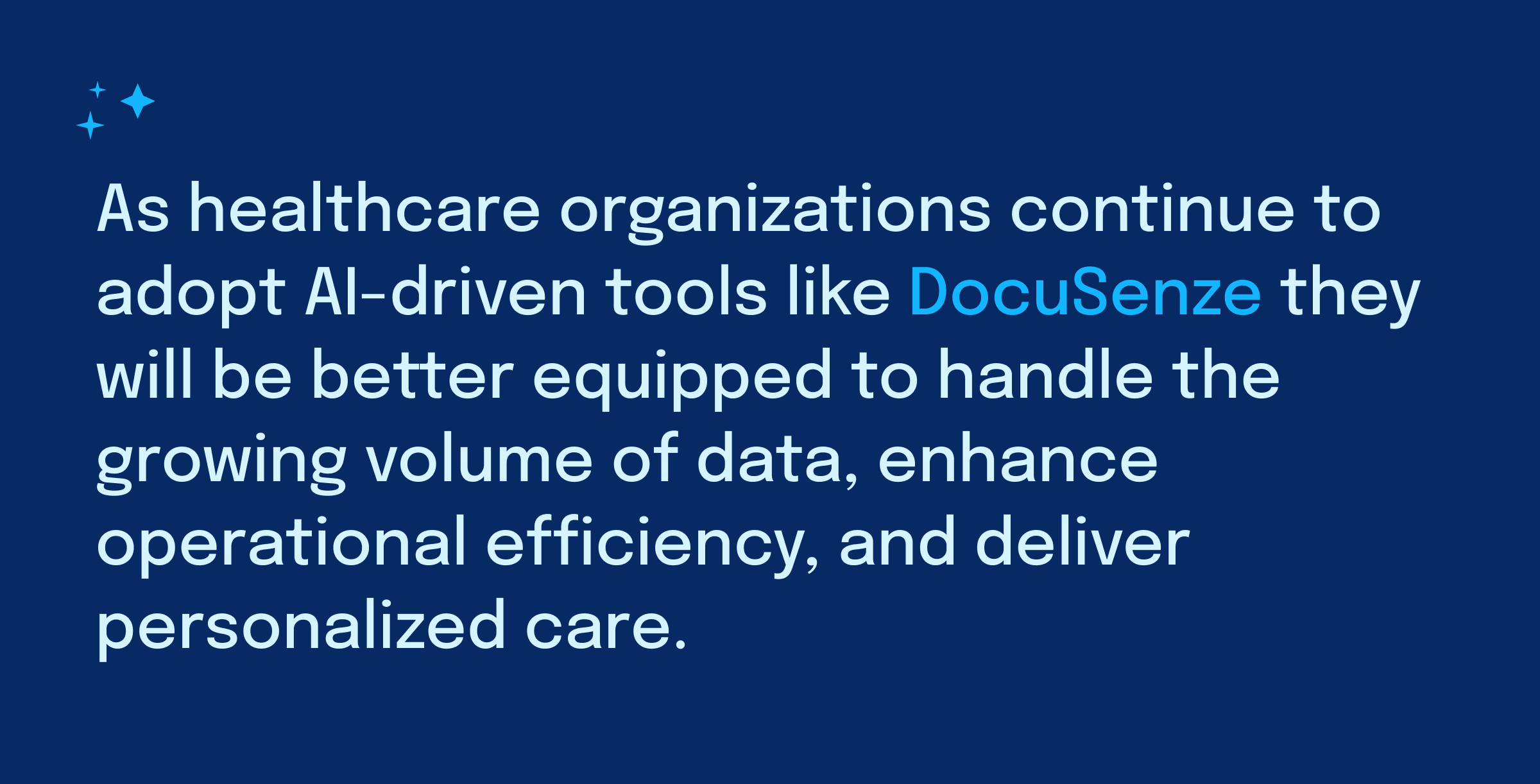
Conclusion
The integration of digital twins and AI technologies is set to transform personalized care in the healthcare industry. By leveraging these innovations, healthcare providers can deliver tailored treatments, improve patient outcomes, and reduce costs. As we look to the future, the synergy of digital twins and AI will become a standard practice, leading to more accurate diagnoses and optimized treatments. Ready to revolutionize your healthcare organization with the latest innovations? Discover how DocuSenze Accelerator can enhance your data management and improve patient care. Contact us today for a free demo!
We can help!
Unlocking The Potential Of Ai In Business Process Outsourcing
#Artificialintelligence
Gold Standard Data: Driving Accuracy In Domain-specific Medical Ai
#Artificialintelligence
Optimizing Llm Costs: A Key To Sustainable Ai Solutions
#Artificialintelligence
